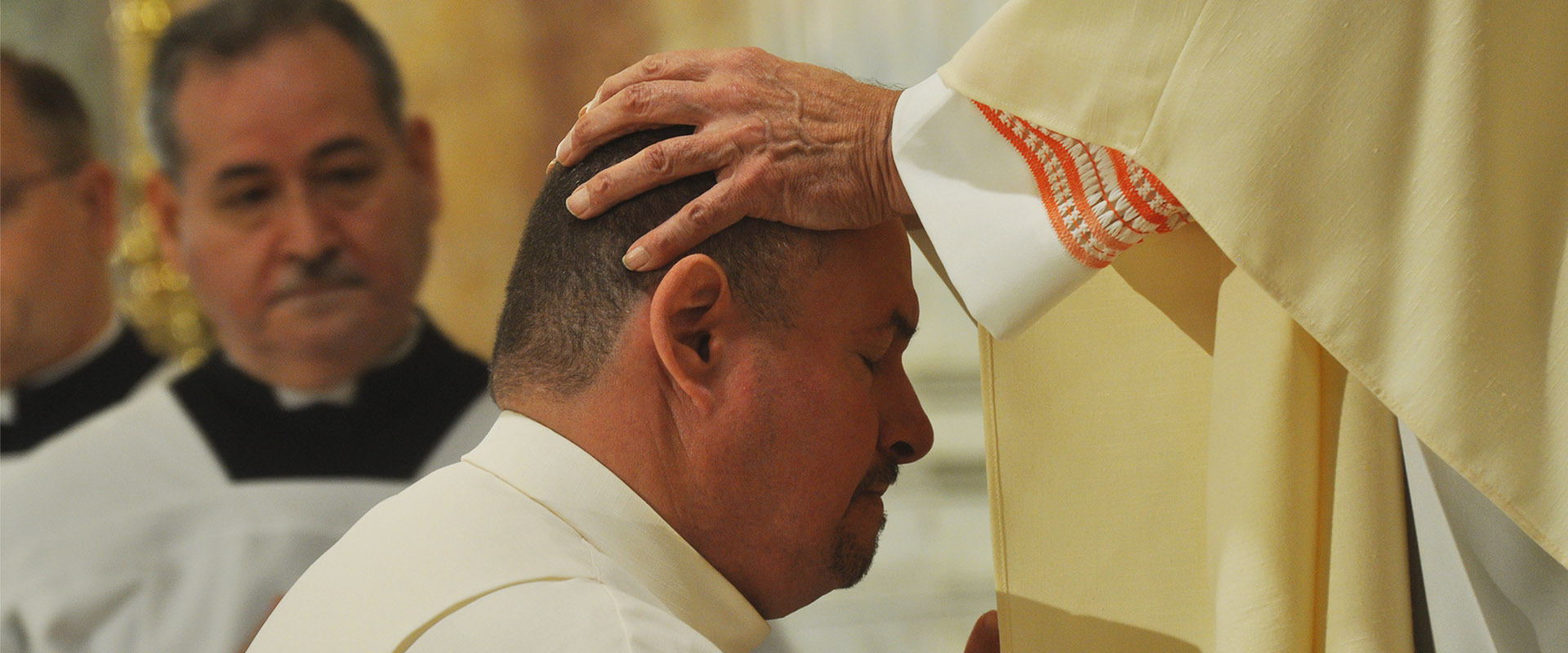WHAT IS A DEACON?
The clearest answer comes from the USCCB website: “A deacon is an ordained minister of the Catholic Church. There are three groups, or ‘orders,’ of ordained ministers in the Church: bishops, presbyters and deacons. Deacons are ordained as a sacramental sign to the Church and to the world of Christ, who came ‘to serve and not to be served.’” He receives the sacrament of Holy Orders at ordination, and the grace of that sacrament flows through all he does.


